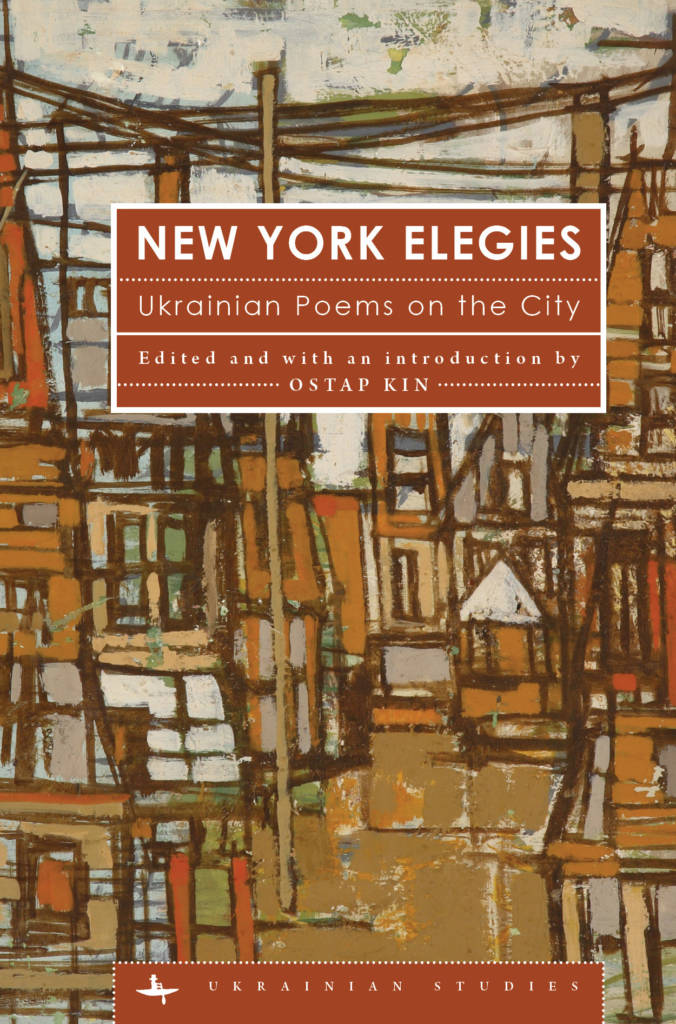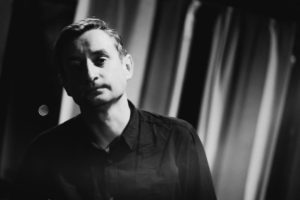By MOISEI FISHBEIN
Translated by JOHN HENNESSY and OSTAP KIN
Kol Nidre
And damp dust between stars will vanish,
and nothing will ever move or shine,
and as you look up at the sky at midday
the slanted rays will cross your sight.
By MOISEI FISHBEIN
Translated by JOHN HENNESSY and OSTAP KIN
Kol Nidre
And damp dust between stars will vanish,
and nothing will ever move or shine,
and as you look up at the sky at midday
the slanted rays will cross your sight.
By VIKTOR NEBORAK
Translated by JOHN HENNESSY and OSTAP KIN
The rusty hollows inside the old mosquito
reduce his soprano to dust. Down the pipe
of his fragile beak, the pumps are already weak.
And his blood flows through fossilized riverbeds.
His gas tanks empty, song silenced, not a drop
of compassion in him… Running on coal fumes,
the rusted engines deliver him to drill
one last buzz through the ears of the crowd.
A kamikaze who would have dropped heavenly tons
on these civilians as on military echelons
and then been posthumously awarded
the highest orders! his name on honor lists!
banners! trumpets! salutes! obelisks!
… if my slap hadn’t smashed him dead.
Viktor Neborak is a poet, writer, literary scholar, and critic. He is also a founding member (along with Yuri Andrukhovych and Oleksandr Irvanets) of the Bu-Ba-Bu literary performance group. His collection The Flying Head and Other Poems appeared in English translation in 2005.
John Hennessy’s most recent books are Exit Garden State, a collection of poems, and Set Change, selected poems by Yuri Andrukhovych co-translated with Ostap Kin.
Ostap Kin is the editor of Babyn Yar: Ukrainian Poets Respond and New York Elegies: Ukrainian Poems on the City. With John Hennessy, he translated Set Change by Yuri Andrukhovych, and A New Orthography by Serhiy Zhadan.
I ask
Half-awake
Is poetry possible
At the moment history stirs
Once its steps
Reverberate through every heart?
— From “Can there be poetry after” by Anastasia Afanasieva, translated by Kevin Vaughn and Maria Khotimsky
With the current Russian invasion of Ukraine, we at The Common have been reflecting on the powerful words of many Ukrainian poets who have appeared in our pages. In recent years their work has been rooted in conflict, as the country struggled first with self-determination and later with the Russian annexation of Crimea and, since 2014, with a Russian-incited war in the East. This focus lends a feeling of prescience and timeliness to their work now, even though most of these poems are not new. We hope you’ll make time to read and reflect on the work of these poets, as we all keep Ukraine and the Ukrainian people in our thoughts.

This month we offer you selections from New York Elegies: Ukrainian Poems on the City, edited by TC contributor, Ostap Kin, forthcoming from Academic Studies Press.
Ukrainian poets have long connected themselves to the powerful myth of New York, offering various takes on its aura of urban modernity, its problematic vitality. New York Elegies demonstrates how evocations of New York City are connected to various stylistic modes and topical questions urgent to Ukrainian poetry throughout the past hundred years.
By MAX FREEMAN, OSTAP KIN, and ANNA BADKHEN
November’s Friday Reads features selections from three Issue 12 contributors: poet Max Freeman, translator Ostap Kin, and essayist Anna Badkhen. All three are reading and recommending poetry this month, verses of otherness, foreigness, complexity, and intelligence. In this month, in this year — when the easy, the soundbitey, and the distorted seem to dominate us — we’re happy to endorse these thoughtful recommendations.
Recommended:
Chord by Rick Barot, Orchard Lamps by Ivan Drach, Garden Time by W.S. Merwin, and Dark Archives by Andre Bradley.
Translated by OSTAP KIN
—Tell me about your new girlfriend, about the one
you’re living with now. What’s between you two?
—The air is between us. I just live with her
the way small children live with their fear.
Translated by OSTAP KIN
A good day is a day
without bad news.
Sometimes everything turns out fine—
no news,
no fiction.
Three thousand steps to the supermarket
frozen chickens
like dead stars
gleam after death.
All you need is
mineral water,
I only
need my mineral water.
Execs, like
frozen chickens,
are hatching
the eggs
of profit
in the twilight.
Three thousand steps back.
All I need to do is hold on
to my mineral water,
to hold on to
the countdown:
thirty-two days without alcohol
thirty-three days without alcohol
thirty-four days without alcohol.
Birds perch on each of my shoulders,
and the one on the left keeps repeating:
thirty-two days without alcohol
thirty-three days without alcohol
thirty-four days without alcohol.
And the one on the right responds:
twenty-eight days till a bender
twenty-seven days till a bender
twenty-six days till a bender.
And the one on the left is drinking the blood of Christ
from a silver chalice.
And the one on the right—the simpler one—
is drinking some crap,
some diet coke.
On top of that
they’re both drinking
on my tab.
Serhiy Zhadan, Ukrainian poet, fiction writer, essayist, and translator, was born in the Luhansk region in 1974 and has published over a dozen books. In 2014 he received the Ukrainian BBC’s Book of the Decade Award; he won the Ukrainian BBC’s Book of the Year Award in 2006 and in 2010. He’s the recipient of the Hubert Burda Prize for Young Poets (Austria, 2006) and the Jan Michalski Prize for Literature (Switzerland, 2014).
Ostap Kin has published work in St. Petersburg Review and Krytyka Magazine. He lives in New York City.
Please join us in welcoming Ukrainian poet SERHIY ZHADAN to our pages—and look for more of his work forthcoming in our print journal.

All poems translated by Ostap Kin. With an introduction by Polina Barskova.